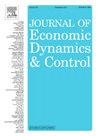最优多期杠杆约束投资组合:神经网络方法
IF 2.3
3区 经济学
Q2 ECONOMICS
引用次数: 0
摘要
我们提出了一种多周期投资组合优化的神经网络方法,该方法放松了只做多的限制,而对杠杆施加了有界约束。我们将这类松弛约束组合的优化问题表述为多周期随机最优控制问题。我们提出了一种新的松弛约束神经网络(RCNN)模型来逼近最优控制。利用本文提出的RCNN模型,将原有的杠杆约束优化问题转化为无约束优化问题,使得求解该问题在计算上更加可行。数学证明了所提出的RCNN控制模型能够以任意精度逼近最优松弛约束策略。我们进一步提出在一个基于累积二次缺陷(CS)的基准上计算最优优胜策略。利用1926年1月至2023年1月的美国历史市场数据,我们分别对最优杠杆约束策略和只做多策略的神经网络方法进行了计算比较和评估。我们证明了杠杆约束的最优策略可以在优于基准投资组合的多头策略中获得更高的绩效。本文章由计算机程序翻译,如有差异,请以英文原文为准。
Optimal multi-period leverage-constrained portfolios: A neural network approach
We present a neural network approach for multi-period portfolio optimization that relaxes the long-only restriction and instead imposes a bound constraint on leverage. We formulate the optimization problem for such a relaxed-constraint portfolio as a multi-period stochastic optimal control problem. We propose a novel relaxed-constraint neural network (RCNN) model to approximate the optimal control. Using our proposed RCNN model transforms the original leverage-constrained optimization problem into an unconstrained one, which makes solving it computationally more feasible. We prove mathematically that the proposed RCNN control model can approximate the optimal relaxed-constraint strategy with arbitrary precision. We further propose to compute the optimal outperforming strategy over a benchmark based on cumulative quadratic shortfall (CS). Using U.S. historical market data from Jan 1926 to Jan 2023, we computationally compare and assess the proposed neural network approach to the optimal leverage-constrained strategy and long-only strategy respectively. We demonstrate that the leverage-constrained optimal strategy can achieve enhanced performance over the long-only strategy in outperforming a benchmark portfolio.
求助全文
通过发布文献求助,成功后即可免费获取论文全文。
去求助
来源期刊

Journal of Economic Dynamics & Control
ECONOMICS-
CiteScore
3.10
自引率
10.50%
发文量
199
期刊介绍:
The journal provides an outlet for publication of research concerning all theoretical and empirical aspects of economic dynamics and control as well as the development and use of computational methods in economics and finance. Contributions regarding computational methods may include, but are not restricted to, artificial intelligence, databases, decision support systems, genetic algorithms, modelling languages, neural networks, numerical algorithms for optimization, control and equilibria, parallel computing and qualitative reasoning.
 求助内容:
求助内容: 应助结果提醒方式:
应助结果提醒方式:


